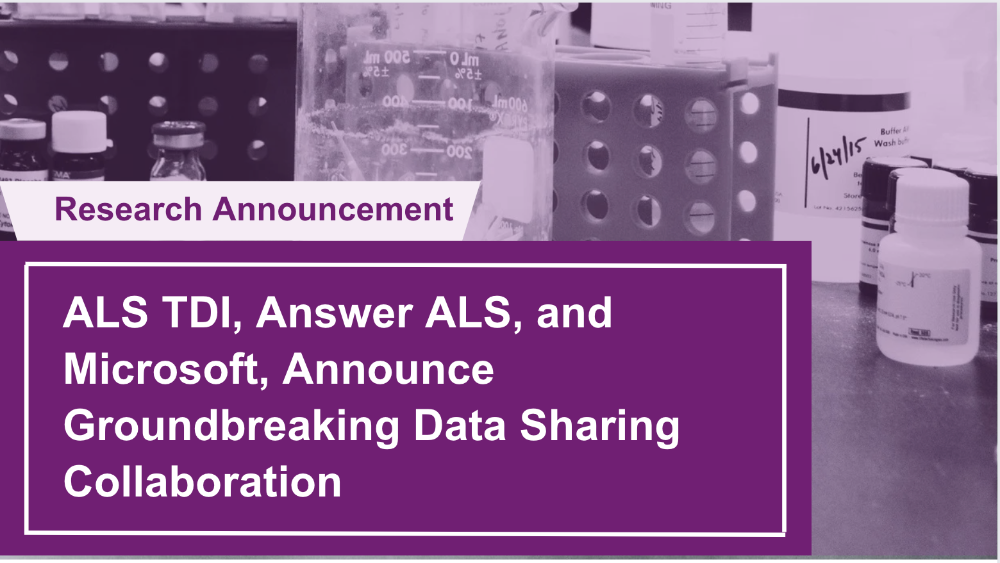
The ALS Therapy Development Institute (ALS TDI), Answer ALS, and Microsoft are pleased to announce a collaboration that will bring together the two largest existing clinical and omics data sets relating to ALS. Through this partnership, comprehensive data collected through ALS TDI’s ALS Research Collaborative (ARC) will be added to Neuromine, an innovative data portal launched in 2021 by Answer ALS and powered by Microsoft Azure.
By nearly doubling the amount of data available through Neuromine, this groundbreaking collaboration can accelerate ALS research worldwide. With these two massive data sets available through the Neuromine platform, researchers will be able to more easily discover and quickly validate new treatment avenues in ALS.
The ARC study is ongoing, and it has already collected over 8 years’ worth of vital ALS data from over 1000 people with ALS around the world. This data will be added to 150 trillion data points from more than 1100 participants in Answer ALS’s 3-year nationwide study.
Fernando Vieira, M.D. CEO and CSO of ALS TDI remarked on the collaboration, stating that, "ALS TDI's ARC study and Answer ALS have spent years generating valuable datasets on ALS. By working together with the Answer ALS team and Microsoft, we can leverage these data and tools to make significant progress in identifying new targets for ALS therapies and developing effective treatments for people with ALS."
This collaboration is an example of the whole being greater than the sum of its parts,” said Clare Durrett, Managing Director of the Answer ALS Foundation. “The expansion of the Neuromine data portal by incorporating data from ALS TDI allows researchers greater power in interrogating the data and more rapidly validating their work. With over 350 new research studies and dozens of papers from the freely accessible data to date, we are anxious to help accelerate ALS discoveries.”
The Neuromine Data Portal is powered by Microsoft Azure, a cloud computing platform that offers access to a wide range of services, from building and deploying applications to data storage and management. “We are grateful to the Answer ALS and ALS TDI organizations for leading the way towards more effective therapies for ALS,” said Mary Bellard, innovation architect at Microsoft. “We’re excited for technology to help accelerate their path towards a cure.”
What Do I Do Next?